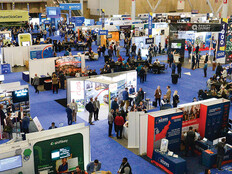University of California Medical Data Recycling Gets $10 Million Bid from Mark Zuckerburg
Dr. Atul Butte believes that the data we need to improve healthcare and outcomes is available in the millions of gigabytes of data already available to us. And, evidently, he isn’t alone, as the concept of “data recycling,” which Butte is currently researching as the head of the University of California, San Francisco’s Institute for Computational Health Sciences, recently garnered the school a $10 million donation from Facebook founder, Mark Zuckerburg, and his wife, Dr. Priscilla Chan.
Big Data and pooled data, or data lakes, are already making quite a splash in healthcare. But the donation will help to support Butte’s research into how public data could go one step further. It already holds the key to everything from “repurposing” drugs approved by the Food and Drug Administration to “finding better ways to deliver health care and keep patients safe,” according to UCSF’s news source.
SIGN UP: Get more news from the HealthTech newsletter in your inbox every two weeks
Putting Big Data to Work in the Hospital
Butte says that sifting through already existing, publicly available data will provide massive insight into health and medicine that hold the potential to produce more cost-effective treatments for patients.
His project at UCSF involves integrating electronic health records from all five medical centers in the University of California system, which comprises more than 15 million patients, a data set Butte calls “among the richest and most diverse” in the world.
“Because the data come from our patients, the data are an incredible resource for UC hospitals to improve the quality of care we deliver throughout California,” he tells UCSF’s news source.
His research has already begun to show fruit. By combining databases, Butte and his team were able to uncover how a drug originally approved by the FDA to kill parasitic worms could be used to fight liver cancer. Following up this find, the team developed a different computational method that employs Big Data to discover new ways to use FDA-approved drugs, which could potentially save the industry millions by allowing companies to test the drugs for a new use and bring them to market, as opposed to funding new pharmaceuticals.
Beyond drug matching, “data recycling” has other uses. By combing through electronic health records, medical centers could improve care and better understand disease. At UCSF, physicians used this method with EHRs to develop a virtual glucose management service (vGMS) for patients with diabetes to prevent hyperglycemia by customizing ideal insulin levels for each patient. A study published in March found that it dramatically reduced the number of patients that were hyperglycemic, something that is linked to poor health outcomes.
“With this new system, there has been a 39 percent decrease in patients on the daily high-glucose hospital report,” lead author Robert Rushakoff, professor of medicine at UCSF and medical director for inpatient diabetes at UCSF Medical Center, tells the university’s news source. “The vGMS and similar inpatient-services leveraging technology may also become economically important for cost savings, as medicine moves toward bundled care.”
Maximizing the Impact of Big Medical Data
Going forward, the donation will help to fund the recruitment and employment of new faculty as well as new computational work, including the continued development of UCSF’s Spoke knowledge network, a resource for researchers looking to develop precision medicine.
The network pulls data “out of silos” in order to connect “the wealth of information that already exists from basic molecular research, clinical insights, environmental data and others,” according to the network’s website.
With some wins already marked out for the Big Data technology, the donation is expected to bolster its impact.
“We are enormously grateful to Priscilla and Mark for their visionary gift supporting the work of Atul Butte, one of the world’s leading physician-scientists working at the frontier of big data,” UCSF Chancellor Sam Hawgood tells the UCSF news source. “His leadership of the Institute for Computational Health Sciences is helping UCSF researchers, health care providers and the UC Health system as a whole to drive progress in the new world of data-driven medicine and science. We expect this to transform health, at the level of individuals and communities.”









